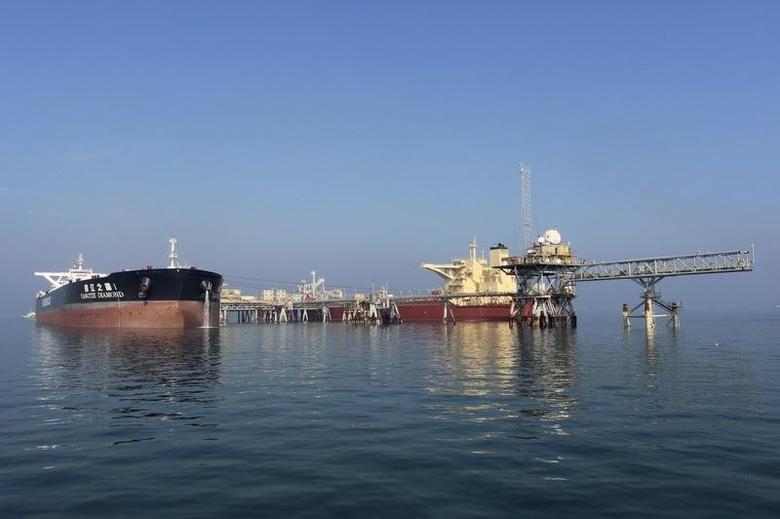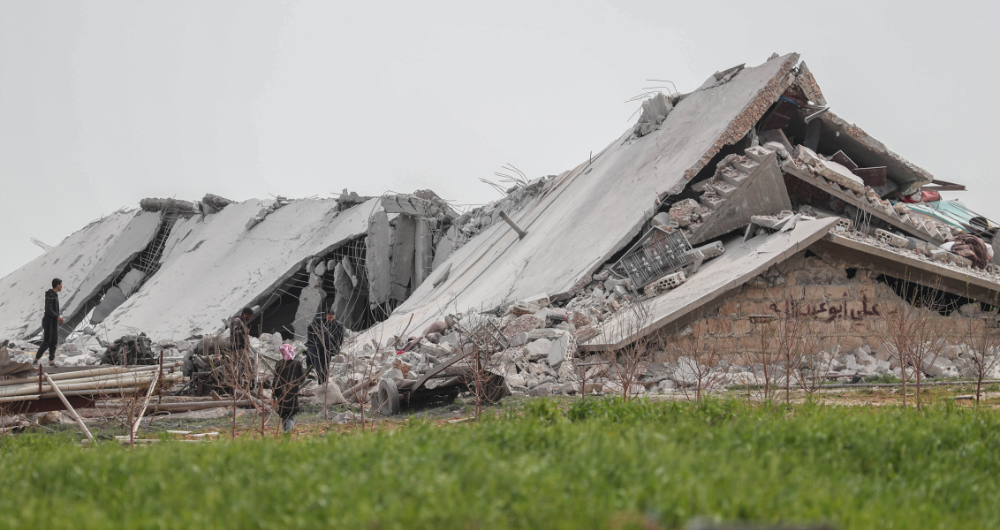Security firms say suspicious object on oil tanker off Iraq
DUBAI: Sailors involved in transferring fuel oil from an Iraqi tanker in the Gulf to another vessel owned by a shipping company traded in the US discovered a “suspicious object” they fear could be a mine, authorities said Thursday.
The discovery comes amid heightened tensions between Iran and the US in the waning days of President Donald Trump’s administration.
Already, America has conducted B-52 bomber flyovers and sent a nuclear submarine into the Arabian Gulf over what Trump officials describe as the possibility of an Iranian attack on the one-year anniversary of the US drones strike in Baghdad that killed a top Iranian general.
Two private security firms said sailors feared they found a limpet mine on the MT Pola, a Liberian-flagged tanker that was receiving assistance Thursday in the Gulf off Basra. A limpet mine is a type of naval mine that attaches to the side of a ship, usually by a diver-member of special forces. It later explodes, and can significantly damage a vessel.
The two firms, Ambrey Intelligence and Dryad Global, say investigations are ongoing.
The United Kingdom Marine Trade Operations, an organization under Britain’s royal navy, said on its website that an “unknown object” had been attached to a ship’s hull in the vicinity of Iraq’s Khor Al-Zubair Port, without providing further information.
The US Navy’s 5th Fleet, which patrols the Mideast, was monitoring the incident, said spokeswoman Cmdr. Rebecca Rebarich. Iraqi officials did not immediately comment on the incident.
The Pola, along with another tanker, serves as floating fuel oil storage of Iraq’s State Organization of Marketing of Oil, said Sudharsan Sarathy, a senior oil analyst at the data-analysis firm Refinitiv. Smaller vessels carry the fuel oil to the ship, which then conducts ship-to-ship transfers in the Arabian Gulf to clients.
Sarathy said the Pola was conducting a ship-to-ship transfer with the MT Nordic Freedom, a Bermuda-flagged tanker. Dryad Global posted a satellite photo that it said showed the Pola and the Nordic Freedom.
The owners of the Nordic Freedom, the company Nordic American Tankers, could not be immediately reached. Stock in the firm traded slightly down early Thursday on the New York Stock Exchange at just under $3 a share.
In 2019, the US blamed Iran for a series of limpet mine attacks on oil tankers near the Strait of Hormuz, the narrow mouth of the Arabian Gulf through which 20% of all the world’s oil passes. Iran denies being involved.
The location of the tankers involved in Thursday’s incident sits just offshore from the border of Iraq and Iran near the mouth of the Euphrates and Tigris rivers in the Shatt Al-Arab. Iran has been closely allied to Iraq since the 2003 US-led invasion that toppled dictator Saddam Hussein, while also arming and aiding militia groups in the country.
Iranian Foreign Minister Mohammad Javad Zarif on Twitter earlier Thursday criticized Trump for wasting “billions to fly B52s & send armadas to OUR region.”
“Intelligence from Iraq indicate plot to FABRICATE pretext for war,” Zarif wrote, without elaborating. “Iran doesn’t seek war but will OPENLY & DIRECTLY defend its people, security & vital interests.”
Separately in Iraq, an improvised explosive device detonated near a convoy belonging to an Iraqi company providing logistical support to US coalition forces Thursday, police officials said.
The attack in the Yusifiyah district south of the capital, Baghdad, caused minor damage and briefly halted the convoy before it continued on its way, the two officials said. The officials spoke on condition of anonymity because they were not authorized to speak to journalists.
The attack was the latest in a series of recent attacks targeting trucks transporting logistical support to coalition bases in Iraq. No casualties have been reported in the attacks.

Iraqi PM says country is at a crossroadsIran to resume gas flows to Iraq after agreement on unpaid bills: Iraq ministry



